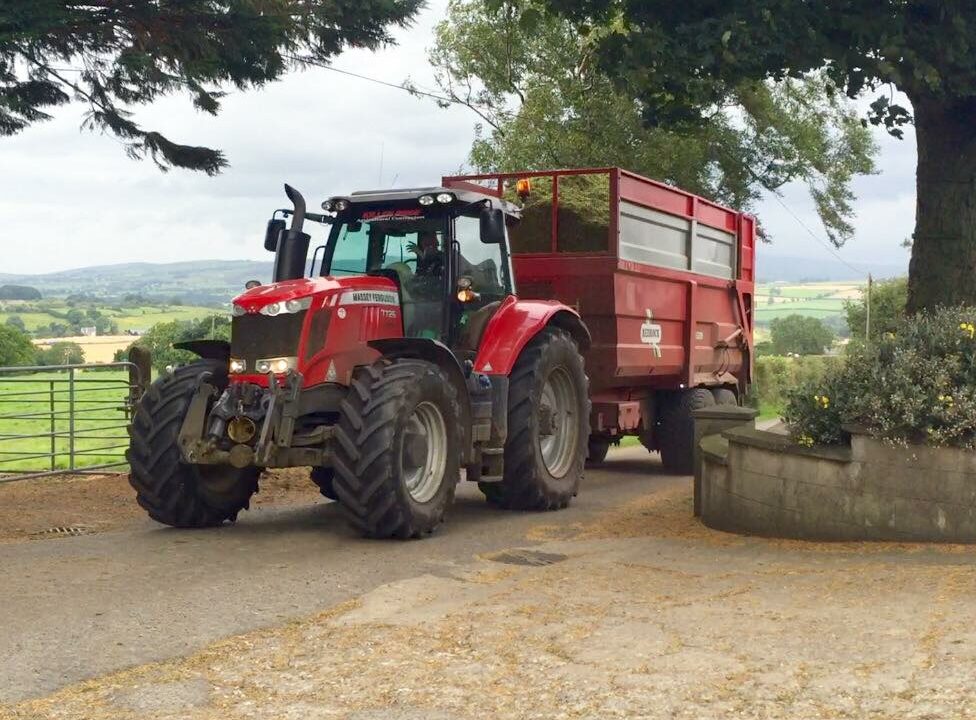Proposed tractor road-worthiness tests could cost farmers and contractors upwards of €1,000 per tractor, according to the association of Farm and Forestry Contractors in Ireland.
Machine preparation costs for a road-worthiness test could leave contractors severely out of pocket, the National Chairman of the FCI, Richard White, said.
The FCI has also written to the Minister for Transport, Tourism and Sport, Shane Ross, seeking an urgent meeting to discuss the impact of the possible introduction of regulations on tractor testing.
There has been no discussion or consultation on tractor road-worthiness testing and it will add significant costs to all farmers and contractors, White said.
What tractors are exempt?
It is believed a regular road-worthiness test for four-wheel-drive tractors, capable of reaching speeds of more than 40kph and that are being used for road haulage, could be introduced in 2018.
Many tractors in Ireland, built during the 1990s, 2000s and up to the present day, would typically have a ’40kph transmission’. They would be exempt from the testing proposals.
However, there are increasing numbers of larger, high-horsepower tractors in Ireland with ’50kph transmissions’ – typically in contractors’ fleets or owned by large tillage farmers. Such tractors have started to become more and more common during the past 10-15 years.
Penalties and fines
A person found driving a tractor without a certificate of road-worthiness would receive five penalty points and a court could impose a fine of up to €3,000 and/or up to three months imprisonment.
The measure is not proposing to apply road-worthiness testing to tractors used exclusively for agricultural purposes (i.e. travelling on the road to get a field, whilst an agricultural implement is attached to the tractor), according to the Road Safety Authority.
If a ‘fast’ tractor (i.e. capable of more than 40kph) is used for commercial haulage work (even if that work is related to agriculture) – for example where the carriage is for hire and reward or even on an own-account basis – then it would be subject to testing, it added.
However, many farm-related transport operations would be exempt. For example, the RSA has confirmed to Agriland that agricultural contractors cutting and transporting silage from the field to a silage pit is not considered to be commercial road haulage.
Contractors set to be worst affected
Most contractors have several tractors, designed for more than 40kph, currently in their yards, White added.
Contractors own the vast majority of the tractors in the proposed testing speed band. We are deeply concerned that there has been no consultation on the issues around a possible test.
“We do not know what the test will involve, who will carry it out and exactly how much it will cost and whether any proposed testing costs will be controlled by Government regulation.
“These are answers to questions that farm contractors in Ireland need to know as the date for the transposition of the regulation is approaching rapidly, just a mere 10 weeks away, on May 20,” he said.
The FCI National Chairman believes that current contractor charges (rates) will not be high enough to support the additional costs of complying with these road-worthiness tests.
These rates do not reflect the huge costs associated with owning modern machinery, and this additional road-worthiness testing cost will force some contractors to re-consider their future in the business.
“The FCI Council believes that Ireland should follow the decision of the UK and not introduce this costly proposed regulation.
“At FCI we will be urging the Minister for Transport to use the opportunity available under the legislation to opt out of its introduction at this time,” he said.
‘Minimum quality standard’
There may be some views that the proposed tests will set a minimum quality standard for the Irish tractor fleet, White said.
“Most serious contractors already embrace the opportunity to promote the fact that their machines are of a high safety standard on the road.
“A road-worthiness test may weed out some of those who are operating in the Black Economy and impacting on all of our businesses, but at a significant additional cost to the established and tax-compliant contractors,” he said.
There is no information to suggest that any proposed road-worthiness test for higher-speed tractors has road safety merits, he added.
If introduced, however, it must be an affordable, fair and transparent test, he said.
